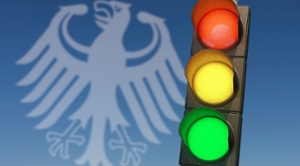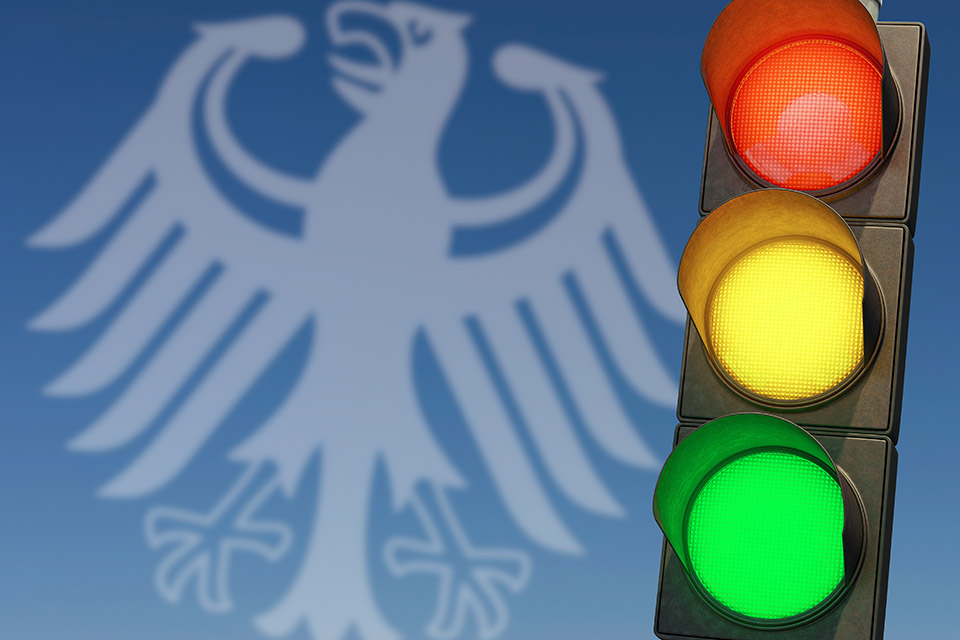Curb your (green) enthusiasm: German Greens keen to govern, faced with a war in Europe and coalition drama
Wednesday, April 19, 202312 - 1:30 pm Eastern Time (US)Zoom Webinar
Co-sponsored by the Brandeis International and Global Studies Program.
About the Event
 The German Greens have come a long way since starting as a manifestation of alternative politics in the 1980s. Step-by-step the party made peace with the parliamentary system and recognized government participation as a way to enact their policy goals. After coalescing with the Social Democratic Party in a federal government from 1998 to 2005, the party started experimenting with new coalition models. At the same time, the Greens have profited from the increased salience of climate issues and the momentum created by new ecological movements like Fridays for Future. The party has doubled its membership in the last decade and with a charismatic and popular leadership received their best result in the federal election 2021 so far. Subsequently, the party played an active role in forging the first ever Social Democrat, Green, Liberal coalition government in Germany with a self-ascribed vision of a Fortschritt (progress) alliance. However, the attack of Russia on Ukraine fundamentally changed parameters and the goal of achieving a carbon neutral society/economy was superseded by the need to secure energy supply at all. The ongoing war adds pressure to an already difficult coalition constellation, where the Liberals often feel as the odd-man out. How does the three party alliance work together, what signature policies did they enact to date and will the novel coalition last?
The German Greens have come a long way since starting as a manifestation of alternative politics in the 1980s. Step-by-step the party made peace with the parliamentary system and recognized government participation as a way to enact their policy goals. After coalescing with the Social Democratic Party in a federal government from 1998 to 2005, the party started experimenting with new coalition models. At the same time, the Greens have profited from the increased salience of climate issues and the momentum created by new ecological movements like Fridays for Future. The party has doubled its membership in the last decade and with a charismatic and popular leadership received their best result in the federal election 2021 so far. Subsequently, the party played an active role in forging the first ever Social Democrat, Green, Liberal coalition government in Germany with a self-ascribed vision of a Fortschritt (progress) alliance. However, the attack of Russia on Ukraine fundamentally changed parameters and the goal of achieving a carbon neutral society/economy was superseded by the need to secure energy supply at all. The ongoing war adds pressure to an already difficult coalition constellation, where the Liberals often feel as the odd-man out. How does the three party alliance work together, what signature policies did they enact to date and will the novel coalition last?
About the Speaker
Dr. Niko Switek received his PhD from the University of Duisburg-Essen with a thesis on novel coalitions of the German Green party on state level. He was a researcher and lecturer at the Institute for Political Science and the NRW School of Governance in Duisburg, focussing on the political system of Germany as well as party and coalition politics in a comparative perspective. Together with a colleague he edited a volume on the European elections 2014. From 2018 to 2021 he was a visiting assistant professor at the University of Washington in Seattle, where he taught German & European studies and started a new research project on populism and political satire at the intersection of politics and popular culture (the results where published in a special issue of German Politics & Society). He currently works for the department of economics in North Rhine-Westphalia.

